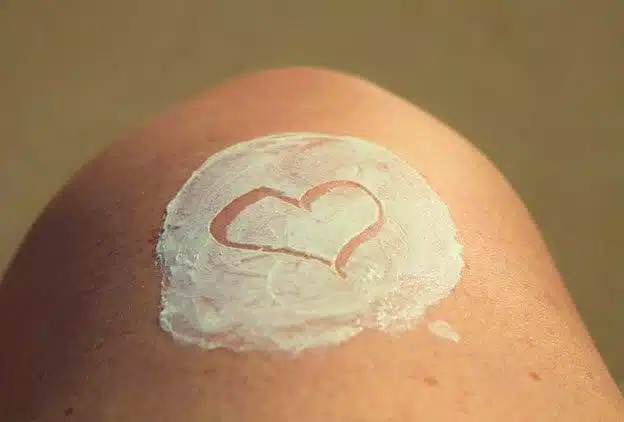Winter Skin Care Tips for Seniors
Posted in Good habits to keep winter skin healthy
As your body’s first line of defense against germs and infection, healthy skin can be a critical, though often-overlooked element of healthy aging. Unfortunately, the cold, dry winter months can take a serious toll on our skin.
In this week’s blog, we look at how aging impacts skin health and how you can lessen the impacts of winter weather on your dermatological health.
Our Changing Bodies
As we age, our outermost layers of skin become thinner, dryer and more likely to experience cracks and breaks. Additionally, superficial breaks in the skin can take longer to heal, making older adults more susceptible to infections or other medical complications.
In order to counter these natural changes in our bodies, older adults must take additional precautions to ensure they maintain healthy skin. 
Good Habits for Good Skin
- While a long, hot shower sounds great on a cold winter night, avoid taking lengthy, overly hot showers. The sudden change in temperature can disrupt your skin’s natural balance of moisture, leading to inflamed, red and sensitive skin. If you notice red patches on your skin during or after a shower, try lowering the water temperature.
- When you are finished bathing, be sure to dry off thoroughly before getting dressed – especially between fingers, toes and folds of skin. Bacteria, fungus and other infection-causing microorganisms grow in moist, warm places like the inside of a shoe.
- Consider switching your soap and other skin care products to milder formulations during the winter months. Chances are you are not working up a sweat like you might during the summer, and overly-strong or scented soaps can take a serious toll on your skin health.
- The human body is predominantly composed of water, but the dry, cold winter air can sap moisture from our bodies and leave our skin flaky, itchy and ready to crack. Counter this by increasing your water intake during the winter and limit your intake of caffeine, alcohol, salty foods and soda.
- Monitor the condition of your skin closely and apply first aid at the first signs of damage to your skin. If a break in the skin does not show signs of healing, be sure to alert a medical care provider for guidance.
- Chances are you will spend more time than normal at home during the winter, so investing in a humidifier and making other simple home modifications can ensure you stay healthy all season.
- When going outside, be sure to avoid exposing any parts of your skin to cold, windy weather for extended periods of time. If you have less sense of your body’s temperature due to age, err on the side of adding additional layers when going outside, just be sure to avoid wearing clothing that impacts your freedom of motion or increases your risk of falls.
SelectCare hopes you found these tips helpful as we enter the coldest months of the year. SelectCare’s team of home health care experts have helped New Yorkers live happier, healthier lives in the comfort of their long-time homes for more than 30 years. To learn how we help families overcome challenges great and small, call SelectCare today or request a free in-home care guide!
